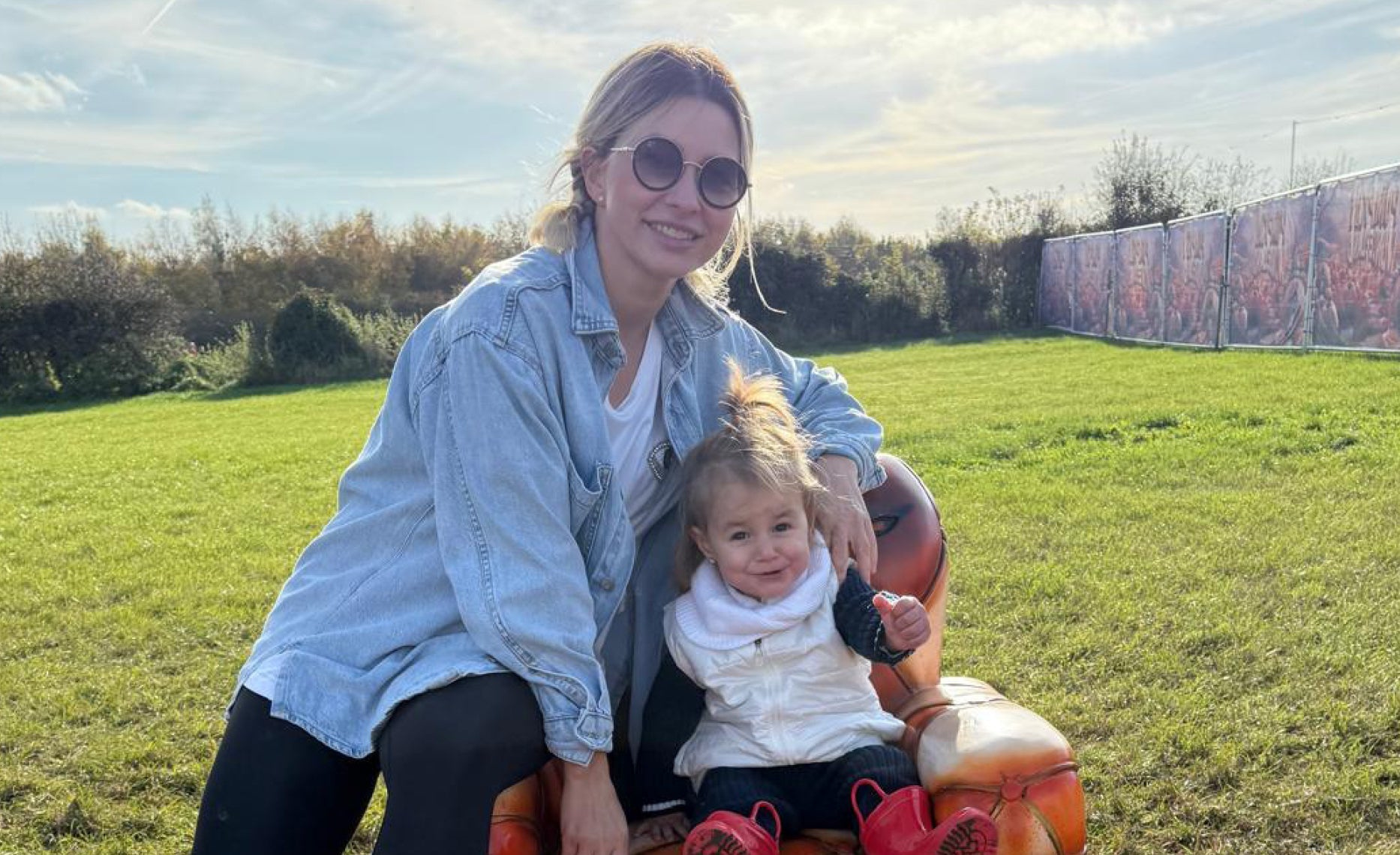Your Antenatal Team: Who Will You Meet on Your Pregnancy Journey?
Share Options
- Bambino Mio
- 19 / 07 / 2023

Inside this Article:
Pregnancy is an exciting journey and you’ll meet lots of new people along the way. Some of the most important people you’ll be getting to know are in your antenatal care team – the healthcare professionals (HCPs) who will be looking after you and your baby.
Your antenatal team comprises a few different people with different specialities and you may have a slightly different set of HCPs to your friends, depending on your needs during pregnancy.
Meeting your antenatal team members
When you meet your healthcare professional at each antenatal appointment (1) they should introduce themselves and tell you what their role is. It’s a good idea to note down their name and role in case you need to discuss something they said later on.
To help you to prepare for your antenatal care schedule, we’ve compiled a list of the people you’ll meet during your pregnancy, with a quick explanation of how they’ll help you and your baby.
Your midwife
Midwives are trained to look after mums and babies (2) throughout straightforward pregnancies and births, as well as during the immediate postpartum period. These HCPs look after you in hospital and/or at home.
Increasingly, you’ll find midwives are working both in the community, at GP surgeries and at home visits, as well as in hospitals. You’ll see the same midwife for most or all of your antenatal appointments and possibly when you give birth.
You’ll find your midwife’s name in your pregnancy notes.
When you’re in labour a midwife will look after you and will most likely deliver your baby. If there are any complications during your pregnancy or labour, your midwife will bring in a doctor to help.
Midwives also look after you and your baby in the first few days and weeks after delivery.
The head of midwifery
The head of midwifery can help you if you feel you’re not being supported enough by your antenatal team or if you feel your wishes aren’t being respected.
This HCP can also arrange help for you if you want to talk about your labour and birth, even if it was a number of years ago.
Your sonographer
Your sonographer performs your ultrasound scans (3), including your 12-week scan (4) and your 20-week scan (5), as well as any other scans you may need.
A sonographer can also perform the screening tests for Down’s syndrome, Patau’s syndrome and Edwards’ syndrome (6).
Your obstetrician
An obstetrician is a doctor specialising in the care of women during pregnancy and labour, as well as after birth.
In some areas, you’ll routinely see an obstetrician and in other areas you’ll only see one if your GP or midwife refers you to one because they have concerns. These concerns might include complications in previous pregnancies or a long-term health condition.
You can also ask to be referred to an obstetrician if you’re worried about your pregnancy or baby.
Your anaesthetist
An anaesthetist is a doctor specialising in anaesthesia and pain relief.
If you have an epidural during labour (7), an anaesthetist will provide this pain relief and if you have a Caesarean section (8), an anaesthetist will give you the right form of anaesthesia.
They’ll also be on hand if you need an epidural for an instrumental delivery (9), such as with forceps or a ventouse (a special vacuum device which helps to deliver your baby’s head).
Your paediatrician
A paediatrician is a doctor who specialises in the care of babies and children.
A paediatrician might check over your baby soon after birth to make sure they’re well and if there are any complications with your labour they’ll be present too.
If there are any problems with your baby, or if you’re worried about anything, you can talk to your paediatrician.
If you have a home birth or you don’t stay in hospital long after having your baby you might not see a paediatrician as your midwife and GP can check your baby. If there are no issues, there’s no need for you to see a paediatrician.
Your neonatal nurse
Neonatal nurses are specially-trained nurses who care for babies who need extra help after they’re born. This could be because they’re premature or because they’re unwell.
These nurses work in specialist neonatal units in hospitals (10) and out in the community and they also support the parents of babies who need neonatal care.
Your obstetric physiotherapist
An obstetric physiotherapist is a physiotherapist who specialises in helping women cope with the physical changes they go through during pregnancy and after birth.
Some obstetric physiotherapists go to antenatal classes (11) and teach pregnant women how to relax and breathe properly during labour as well as how to adopt active birth positions.
These HCPs also teach postnatal mothers how to exercise to tone up their muscles after giving birth.
Your health visitor
Health visitors (12) are nurses who are trained to support families throughout pregnancy and up to your child’s fifth birthday.
You might meet your health visitor before you actually have your baby and then again two or three weeks after you’ve given birth.
You can see your health visitor at home, at your GP surgery, a child health clinic or at your local children’s centre.
Find your nearest children’s centre here.
Your dietitian
If you need help and advice on eating healthily in pregnancy (13), if you have a special diet or if you develop gestational diabetes (14), a dietician can provide this for you.
Citations and References
(1) National Health Service (NHS). ‘Your Pregnancy Care. Your Antenatal Appointments.’ Web. www.nhs.uk/pregnancy/your-pregnancy-care/your-antenatal-appointments
(2) National Health Service (NHS). ‘Midwife.’ Web. www.healthcareers.nhs.uk/explore-roles/midwifery/roles-midwifery/midwife
(3) National Health Service (NHS). ‘Health A to Z. Ultrasound Scan.’ 2021. Web. www.nhs.uk/conditions/ultrasound-scan
(4) National Health Service (NHS). ‘Your Pregnancy Care: 12-week Scan.’ 2020. Web. www.nhs.uk/pregnancy/your-pregnancy-care/12-week-scan
(5) National Health Service (NHS). ‘Your Pregnancy Care. 20-week Screening Scan.’ 2021. Web. www.nhs.uk/pregnancy/your-pregnancy-care/20-week-scan
(6) National Health Service (NHS). ‘Your Pregnancy Care. Screening for Down's Syndrome, Edwards' Syndrome and Patau's Syndrome.’ 2021. Web. www.nhs.uk/pregnancy/your-pregnancy-care/screening-for-downs-edwards-pataus-syndrome
(7) National Health Service (NHS). ‘Overview. Epidural.’ 2023. Web. www.nhs.uk/conditions/epidural
(8) National Health Service (NHS). ‘Health A to Z. Caesarean Section.’ 2023. Web. www.nhs.uk/conditions/caesarean-section
(9) National Health Service (NHS). ‘What happens in Labour and Birth. Forceps or Vacuum Delivery.’ 2023. Web. www.nhs.uk/pregnancy/labour-and-birth/what-happens/forceps-or-vacuum-delivery
(10) National Health Service (NHS). ‘After the Birth. Special Care: Ill or Premature Babies.’ 2021. Web. www.nhs.uk/pregnancy/labour-and-birth/after-the-birth/special-care-ill-or-premature-babies
(11) National Health Service (NHS). ‘Preparing for the Birth. Antenatal Classes.’ 2021. Web. www.nhs.uk/pregnancy/labour-and-birth/preparing-for-the-birth/antenatal-classes/
(12) Institute of Health Visiting. ‘What is a Health Visitor?’ Web. ihv.org.uk/families/what-is-a-hv
(13) National Health Service (NHS). ‘Keeping Well in Pregnancy. Eating Well in Pregnancy.’ 2023. Web. www.nhs.uk/pregnancy/keeping-well/have-a-healthy-diet
(14) National Health Service (NHS). Health A to Z. Gestational Diabetes.’ 2022. Web. www.nhs.uk/conditions/gestational-diabetes







































